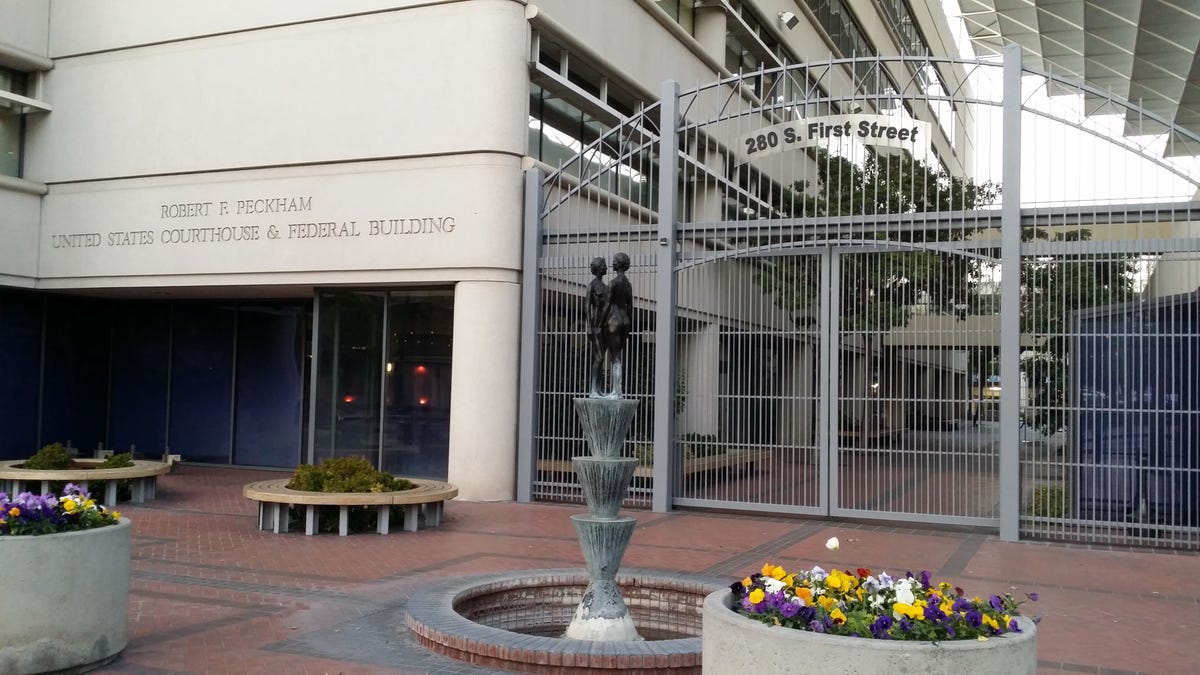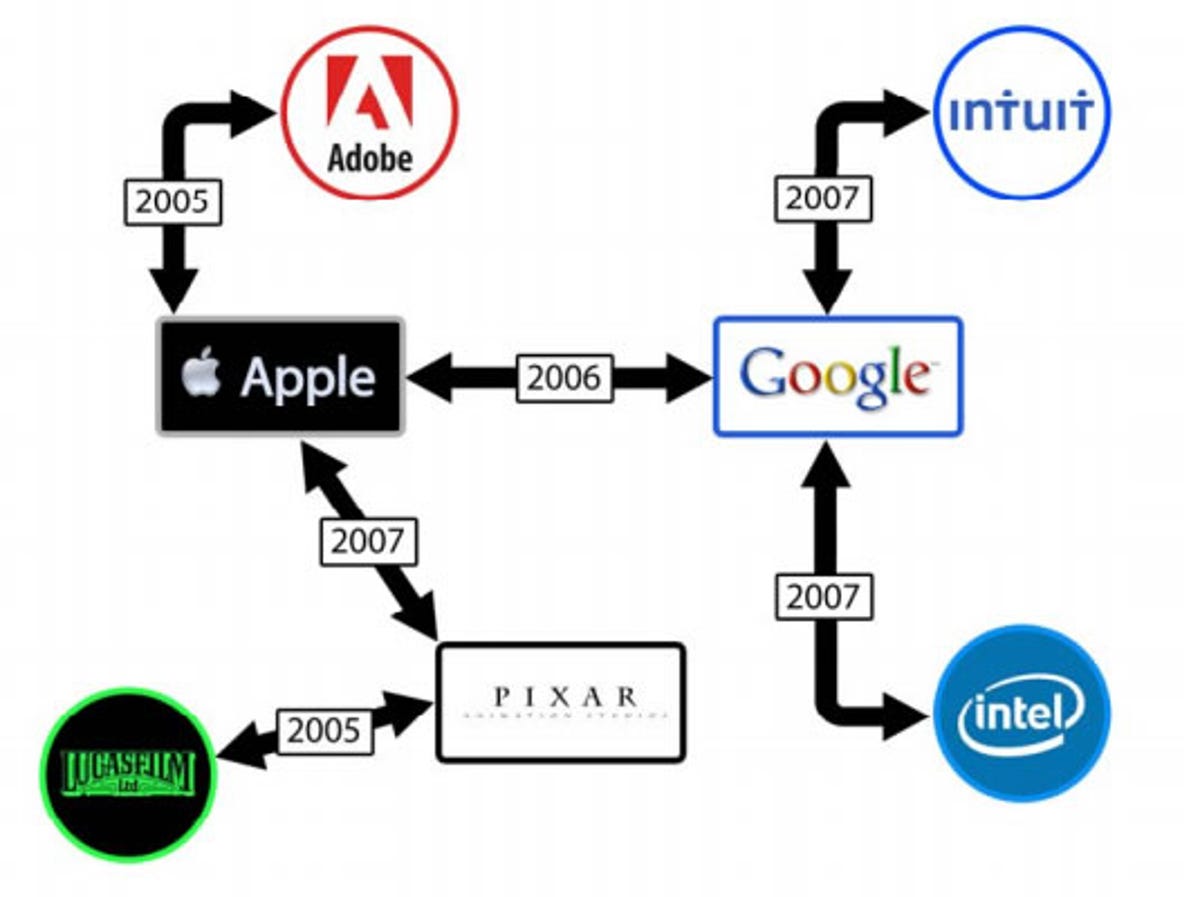
Shara Tibken/CNET
A US district court judge has rejected a settlement reached in a wage-fixing lawsuit involving Silicon Valley powerhouses such as Apple and Google, saying the $324.5 million deal is too low.
Judge Lucy Koh, of the Northern District of California in San Jose, on Friday said the settlement amount should have been higher, particularly given the strong case the plaintiffs had against the companies.
Koh noted in her ruling that “compelling evidence” linked the companies together, and the defendants, which also included Intel and Adobe, played a major role in organizing the alleged scheme to work together to avoid poaching each other’s employees. Apple’s Steve Jobs; Google’s Eric Schmidt; and Bill Campbell, the Intuit chairman and Google adviser who recently left Apple’s board, “were key players in creating and enforcing the anti-solicitation agreements.”
And there is “substantial and compelling evidence that” Jobs, in particular, “was a, if not the, central figure in the alleged conspiracy,” Koh said. Evidence presented by the plaintiffs has included emails between Jobs, Schmidt, and other high-level tech executives that discussed their plans.
See also
- Apple, Google seek approval for $324.5M wage-fixing settlement
- Google, Adobe, Apple, Intel settle wage-fixing lawsuit
- Apple v. Samsung — Sorry, but it’s not over yet
Apple, Google, Intel, and Adobe revealed in April they had reached a deal with employees who accused them of using noncompetitive hiring practices to keep wages low. The following month, the companies revealed the settlement totaled $324.5 million, avoiding a potentially costly and drawn-out trial that was scheduled to start at the end of May. If the plaintiffs had won in court, they could have received damages of more than $9 billion.
Under the settlement’s terms, employees in the case would receive an average of about $3,750, Koh said in her ruling Friday. She noted that she’s “concerned that class members recover less on a proportional basis” from the settlement with the four remaining defendants than from the settlement with the other three initial defendants — Lucasfilm, Pixar, and Intuit — reached a year ago. The lower level for the deal comes even as the plaintiffs’ case has gotten stronger, she said.
If the remaining defendants — Apple, Google, Intel, and Adobe — reached a settlement at the same or higher rate as the settled defendants, the amount should total at least $380 million, she said.
Intel in a statement said it’s “disappointed that the Court has rejected preliminary approval of an agreement that was negotiated at arm’s length over many months.”
“We appreciate that the court has provided the parties with additional information on the court’s view of the case,” the company said. “We have made no decisions concerning future steps at this stage.”


Lieff Cabraser Heimann and Bernstein
Apple and Google declined to comment. Adobe said it does not comment on pending litigation.
The case started in 2001 when a former Lucasfilm software engineer filed a lawsuit alleging that the seven companies were conspiring to keep wages low by refraining from poaching one another’s employees. Several similar complaints followed and they were all consolidated into a class action lawsuit that covered nearly 65,000 employees who worked for the companies between 2005 and 2010.
The plaintiffs originally planned to seek $3 billion in damages, which would have been tripled under antitrust law if they succeeded in their suit. One plaintiff spoke out against the $324.5 million amount settlement after it was announced, saying it was not nearly enough.
Lucasfilm, Pixar, and Intuit settled last year for a combined $20 million, covering 8 percent of the employees named in the suit.
John M. Simpson, privacy project director for consumer rights group Consumer Watchdog, applauded Koh’s rejection of the settlement but said the company executives involved in the suit should lose their jobs.
“I expect the parties will ultimately take her suggestion and settle at the higher rate,” he said. “Sadly, though it will only be the companies that pay. The executives who willfully engaged in illegal activities won’t suffer personally for their despicable behavior.”
Reuters earlier reported the news.
Updated at 3:35 p.m. PT with additional background and comments from the ruling and the companies.
Judge rejects settlement between plaintiffs and Apple, Google, Intel, and Adobe



